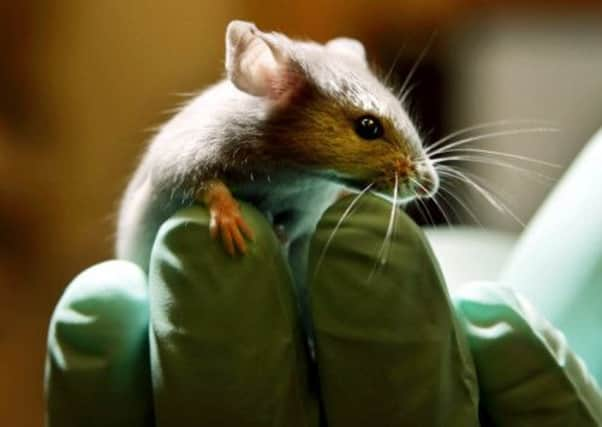Animal testing in UK up by nearly 10%, says report


• Number of animals being experimented on increased to over 4 million in 2012, up by nine percent from previous year
• Eight per cent rise in number of experiments using animals, report reveals
Advertisement
Hide AdAdvertisement
Hide AdLatest annual Home Office statistics showed that the number of animals being experimented on reached 4,033,310 last year, up by nine per cent on 2011.
There was also an eight per cent increase in the total number of experiments using animals which also passed the four million mark in 2012.
Ministers claimed that the report showed how “rigorous” their policies were and pointed out that the rise was largely due to an increase in breeding genetically modified animals for research. Removing that category from the statistics would show a fall in the overall number of experiments of two per cent to 2.13 million, they said.
However animal rights campaigners said the “unacceptable” rise was clear evidence that the UK Government was still failing to keep its pledge to reduce animal testing.
Home Office Minister Lord Taylor said: “The report shows that the UK has one of the world’s most rigorous systems to ensure that animal research and testing is only carried out where no other alternatives exist and under stringent controls where suffering is kept to a minimum.
“The European Directive has led to us strengthening our legislation even further. We are now maintaining our high standards of welfare and animal protection without unnecessary bureaucracy and securing our competitiveness in this important area of science.”
Condemning the figures, Michelle Thew, chief executive of the British Union for the Abolition of Vivisection, said: “A nine per cent increase in the number of animals used in experiments started in 2012 is shocking. The Government has failed for a third year on its post-election pledge to work to reduce the number of animal experiments and, as a result, millions of animals continue to suffer and die in our laboratories. This lack of progress is completely unacceptable.”
People for the Ethical Treatment of Animals denounced the “industrial-scale” breeding of GM animals, many of which were genetically programmed to suffer painful defects.
Advertisement
Hide AdAdvertisement
Hide AdThe Humane Society International attacked the government’s “woefully inadequate” investment in seeking alternatives to animal testing which it said accounted for just 66p for each of the millions of animals still used in UK laboratory research.
A spokesman added: “The excuse that this level of animal use benefits medical research is wearing thin.”
Most of the experiments were conducted as part of medical and dental research at universities across the UK, the government report stated.
The latest figures revealed that more than seven hundred monkeys were used in 3,000 experiments, equating to a 22 per cent rise in tests on non-human primates. There was also a marked 14 per cent increase in research on sheep, which equalled the rise in use of laboratory mice.
However there were also significant falls in testing on rabbits, which dropped by 10 per cent, while experiments involving fish and pigs were down by 11 per cent and 22 per cent respectively.
Universities defended animal testing as a crucial part of work producing new treatments for numerous diseases affecting both people and other creatures.
The University of Edinburgh said it followed the strict UK legislation under which studies involving animals can only be done if it is justified on scientific, ethical and legal grounds, and no alternative is possible. A spokeswoman said: “Research using animals has played and continues to play a key role in the advancement of medical, biological and veterinary science. It has made a vital contribution towards the understanding, prevention, treatment and cure of a wide range of major health problems, including cancer, heart disease and diabetes.”
SEE ALSO